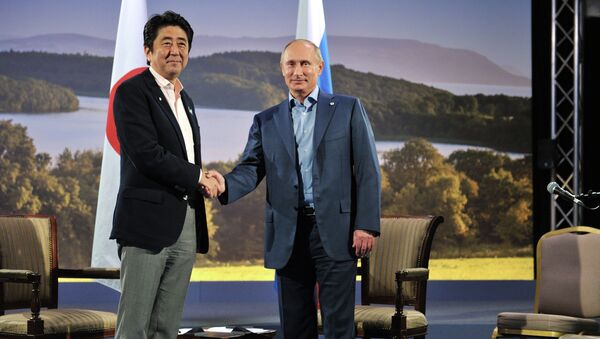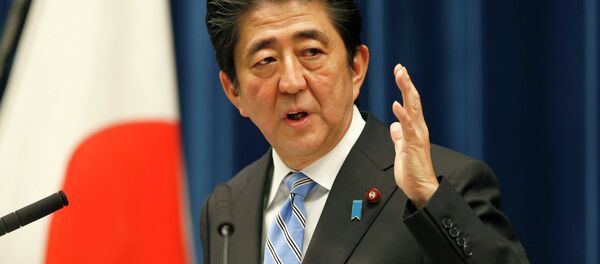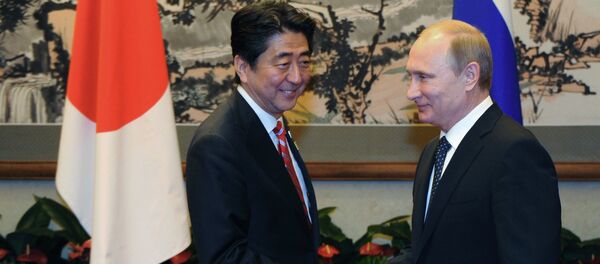"It is sad that last year these relations froze, primarily due to the fact that Japan was forced to follow the anti-Russian sanctions, although perhaps not in such an aggressive form, like some other members of the Western world," Lavrov said at a press conference in Moscow.
Russia's top diplomat noted that Moscow "highly appreciates the relations with Japan and the Japanese people."
Lavrov added that Russian President Vladimir Putin's decision whether to visit to Japan would be made when Tokyo specifies the time frame for the invitation.
In 2014, the Ukrainian crisis had an impact on Russia's relations with a number of countries, as Moscow was accused of participating in the military conflict in the southeast the country.
In early November 2014, the Russian president met briefly with Japanese Prime Minister Shinzo Abe in Beijing to discuss cooperation between the two countries.
The two leaders agreed to continue working together and to promote trade and economic projects. Following the meeting, Putin praised the progress made in developing Russian-Japanese relations, which he said had improved both economically and politically.
On December 31, 2014, Putin expressed his readiness for talks with Abe on deepening relation with Japan and to engage in active collaboration with the country on a wide range of regional and international issues.



